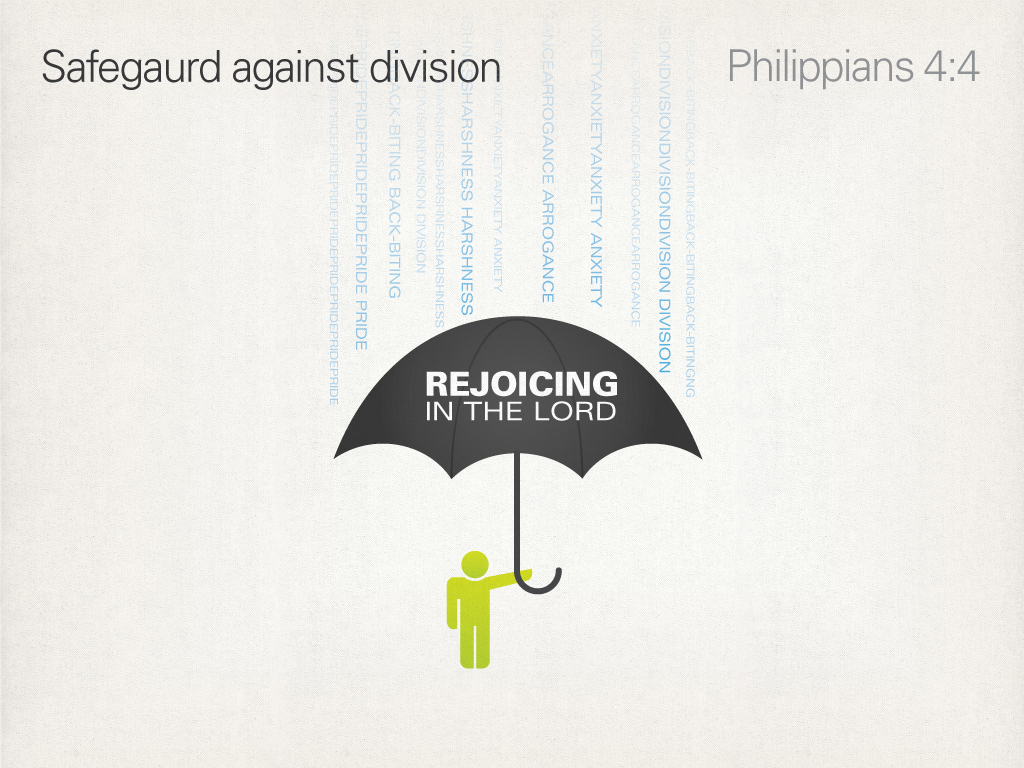Safeguarding Against Division
"So here we have three core themes that run through the book: like-mindedness, humbly serving others, and rejoicing. All three will surface again in this section. If the conflict between Euodia and Syntyche was not a doctrinal or moral issue, it must have been an interpersonal conflict of some kind. I have found the latter to be far more divisive than the former. It usually begins as a disagreement of some kind, often over a judgment call. It is not the difference between right and wrong, but between better and best, between doing it one way versus another. Such matters are highly subjective, with “right” based on one’s personal values and preferences.
If the issue is not resolved early on, it will fester. This is especially the case where efforts at reconciliation end with “agreeing to disagree.” Why? Because each side leaves thinking that they are right, without either being willing to back down. What may have started as a small disagreement can lay the foundation for something far larger. People begin to align with one side or the other. Each is looking for a slip-up or failure of the other person that might lead to vindication: “See, she blew this opportunity just like I said she did before! It’s the same cycle repeating itself.” If you have been in the church for any length of time, there is a good chance you have witnessed or experienced something like this unfold. Not only does it destroy relationships, it can completely distract believers from the God-given task at hand: living out the gospel in a way that attracts people to Christ. If there is unresolved conflict with people taking sides, how compelling an advertisement will this be for following Jesus?
...There comes a point in interpersonal conflicts where everyone loses, regardless of how it all started. The toll of backbiting, bitterness, and resentment leaves no one unscathed. It’s like what we see during political campaigns today. Paul wisely presses for an end to these matters, not by choosing sides but by describing what a godly, honorable person would do. Even though the matter is only mentioned in 4:2–3, the rest of this chapter continues to address the problem by raising the standard for Christian conduct...
...Paul again commands the Philippians to rejoice. Rejoicing doesn’t just guard their hearts against discouragement (3:1), but also against division. If I am choosing to rejoice in the Lord over my circumstances or situation, it will be nearly impossible to hold a grudge against those with whom I am involved. It is an either/or proposition. A natural consequence of truly rejoicing in the Lord about something is the inability to complain about the same thing. If I’m going to forgive someone, it will require me to let go of any bitterness or resentment I might harbor toward them. If you’re resentful, you’re not rejoicing." [1]

 RSS Feed
RSS Feed
